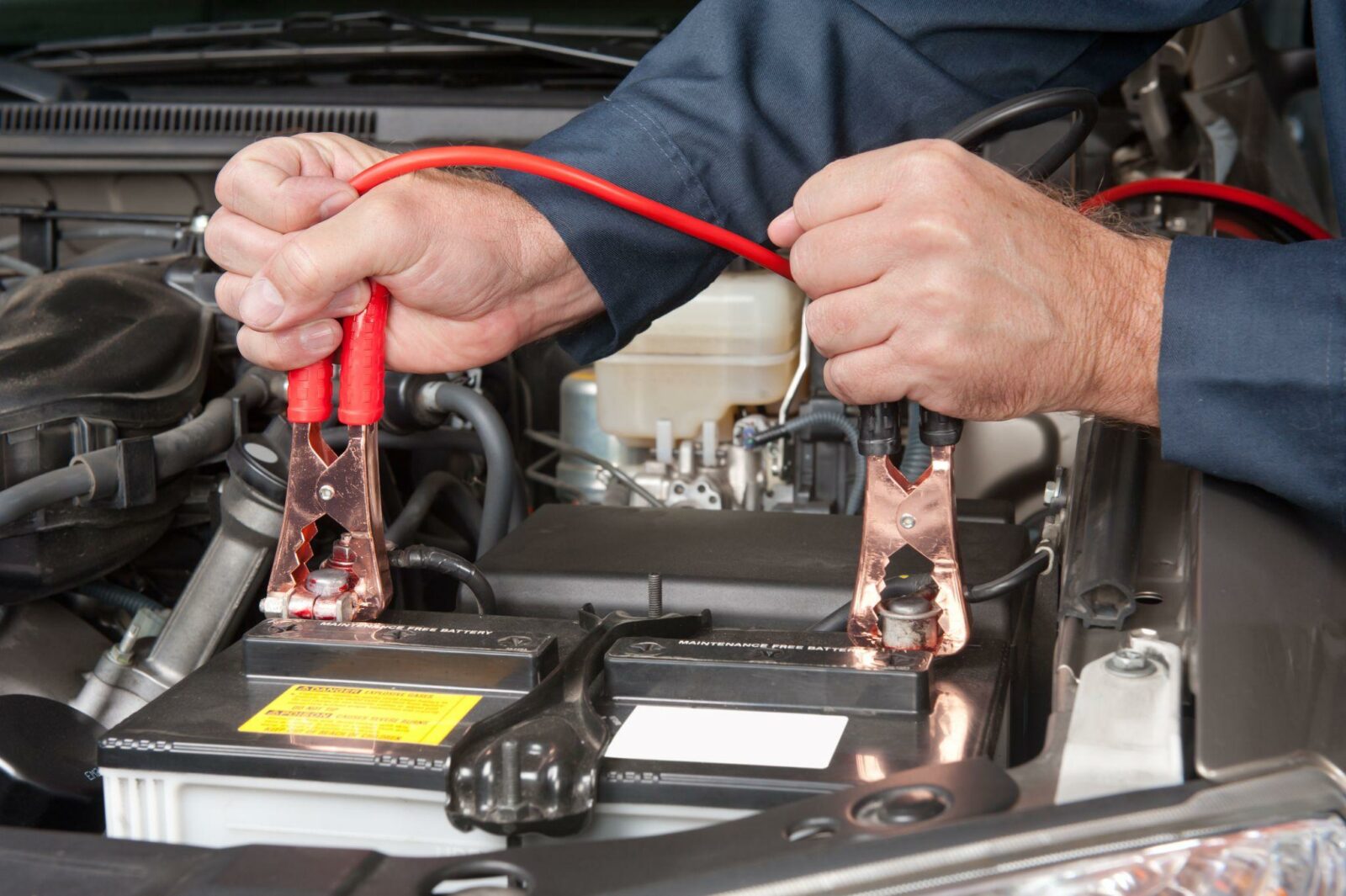Outline:
- The Life of a Car Battery in Normal Circumstances
- The Five Enemies Of A Car Battery
- The Effects Of Heat On A Car Battery
- The Effects Of Cold On A Car Battery
- Short Driving Periods Affect Car Battery Life
- The Effects Of Shallow Discharges On A Car Battery
- The Effects Of Overcharging A Car Battery
- Here Are Our Tips On Prolonging The Life Of Car Batteries:
- Frequently Examine Your Battery’s Voltage
- Don’t Take Frequent Short Trips
- Clean Your Battery Terminal Regularly
- Don’t Use Electrical Gadgets When Your Car’s Engine Isn’t Running
- Avoid Extended Storage During Winters Or Dry Seasons
- Regularly, Have Your Automobile Serviced
- Keep Your Battery Secured With A Strong Grip
- Get Your Car’s Battery Checked
If you find yourself in a position where your car battery needs to be jump-started on a regular basis, it’s time to consider replacing it. A car battery is one of the most vital components in a vehicle, and if it dies prematurely, you may find yourself stranded on a lonely road.
Here are steps that will prolong the life of your car battery, so you never have to worry about being stranded again!
The Life of a Car Battery in Normal Circumstances
In normal circumstances, the average car battery can last from three to five years. You may extend the life cycle of your automobile by maintaining it in excellent condition and caring for it.
A car battery is usually made up of six cells, each containing two electrodes submerged in electrolytes. As you start your engine and the alternator begins to charge it, chemical reactions occur between the lead plates inside the cell, producing electricity.
The Five Enemies Of A Car Battery
However, this process will only continue for so long before other factors cause some severe damage that can shorten its life cycle considerably.
We’ll explain how all these affect a car battery below! If any of them occur regularly or happen frequently enough while owning your vehicle, you may have an issue on your hands sooner rather than later. But if you know what to look out for, you can prolong the life of your car battery.
The five enemies are as follows:
The Effects Of Heat On A Car Battery
Heat is number one on our list because it’s easily avoidable and highly destructive! A lead-acid battery will lose about four percent of its capacity per year for every 15 degrees Celsius increase in temperature above 30 degrees Celsius (86 Fahrenheit). Therefore, if you live somewhere particularly hot or spend most of your time driving with the windows down during the summer months, this could be doing severe damage to your vehicle’s battery.
One way around this problem is by investing in an intelligent charger that monitors voltage levels while charging automatically, adjusting its amperage to overcharge the batteries’ cells, producing heat.
The Effects Of Cold On A Car Battery
Cold is another factor that wreaks havoc on a car battery! During cold weather, the active materials in lead-acid batteries harden, and this causes them to be less efficient at storing energy. Below-freezing temperatures are so detrimental to battery life that, in some cases, they can reduce overall capacity by around 40 percent.
You can’t control the weather, but if your car is left outside all night during the winter months, charge it on an efficient charger before you start it up in the morning. Lithium-ion batteries will only take about 15-30 minutes to reach optimum performance levels and prolong their life!
Short Driving Periods Affect Car Battery Life
Don’t leave your automobile parked on “E” for hours on end without putting any power into it may appear to be obvious, but don’t drive your car until “E” then leave it there for hours. Short driving periods are also bad news because they put unnecessary strain on batteries, reducing their efficiency.
If you have to leave your car parked for more than a couple of days, try plugging it into an intelligent charger before starting it up again. Reduce the strain on your battery’s cells by lowering the amount of time it spends in use, and this will help to extend its life by preventing any harm from occurring!
The Effects Of Shallow Discharges On A Car Battery
When we think about shallow discharges, this usually refers to things like leaving the headlights on overnight or forgetting to turn off interior lights which can cause a lead-acid car battery to lose some of its charges even if not in use. If left unchecked over time, these frequent small charges are enough t0 wear down active materials inside cells that generate electricity, causing them ultimately fail after just three years instead of five.
What we’re attempting to convey is that it’s a great habit to turn off lights and interior features when you park your car; this extends the life of your batteries and prevents them from dying too soon!
The Effects Of Overcharging A Car Battery
This is an obvious one, but leaving your battery plugged in for extended periods of time without a smart charger can cause long-term harm, reducing its overall lifespan. However, if you make sure only to use chargers with advanced technology such as lithium-ion or lead-acid smart chargers (that monitor voltage levels), this shouldn’t be much of an issue.
Here Are Our Tips On Prolonging The Life Of Car Batteries:

Frequently Examine Your Battery’s Voltage
If your battery is no longer holding a charge or losing its ability to hold a charge, this might be an indication that it’s on the verge of dying.
Invest in intelligent chargers and make sure to use them whenever possible. These chargers monitor voltage levels while charging, automatically adjusting amperage not to overcharge the batteries cells, producing heat.
Keep your car in a relaxed environment (preferably under 30 degrees Celsius) when storing for long periods and always try using the car’s regular charger before resorting to placing it into storage mode if broken down etc.! That prolongs battery life by reducing strain caused by shallow discharges such as leaving headlights/interior lights on overnight, short driving periods, etc.
Don’t Take Frequent Short Trips
Your automobile’s battery is activated when you start it, but the engine recharges it throughout the trip. If you’re just going a short distance, the battery will never be able to replenish the energy it has lost, and if you do this often, the battery voltage will gradually drop until your car won’t start.
The battery’s integrity may be maintained by driving your car frequently and for extended periods. If you don’t drive your vehicle often, consider purchasing a battery charger to maintain the correct voltage.
Clean Your Battery Terminal Regularly
Corrosion at the terminals can prevent your car battery from receiving a charge. Examine the hardware for any corrosion that has developed, and apply a light coat of petroleum jelly or waterproof tape to keep them free from water in the future. If the terminals are extremely filthy, use a paste made with baking soda and water.
Don’t Use Electrical Gadgets When Your Car’s Engine Isn’t Running
If you’re not using your car, don’t use any electrical gadgets inside it! By reducing strain on the cells, you’ll extend the life of your car battery and prevent any harm from occurring. If you have a system that draws power from the cigarette lighter, make sure to disconnect it when not in use!
Avoid Extended Storage During Winters Or Dry Seasons
If your automobile is going to be stored for an extended length of time (for example, during the winter or dry season), we recommend removing your battery and storing it with a charger. That prolongs the life of your battery and keeps it in good condition!
Regularly, Have Your Automobile Serviced
If you want to decrease the possibility of an unexpected battery failure, have your car’s battery tested by a professional. Request that your vehicle’s battery be checked at the next service interval to avoid any surprises.
Keep Your Battery Secured With A Strong Grip
When tightening the battery hold-down clamps, use a socket wrench and torque them down evenly. That will help keep your battery in place and prolong its life.
The negative and positive battery clamps should be tightly tightened simultaneously. If you over-tighten the battery clamp nuts, however, you might damage the battery! Instead, pull them just until you sense resistance building up (and no further) before going on to the next half turn.
Get Your Car’s Battery Checked
Dependable Car Care has been the leading provider of automotive services in your neighborhood for decades. If you need a battery inspection or any other type of repair, give us a call and one of our knowledgeable experts will be glad to assist you.
We’ll even check whether there is corrosion on the terminals, so it doesn’t happen again. And remember, if we find out during an inspection that your battery is not working correctly–we’ll replace it! Call today before things get worse than they already are.



